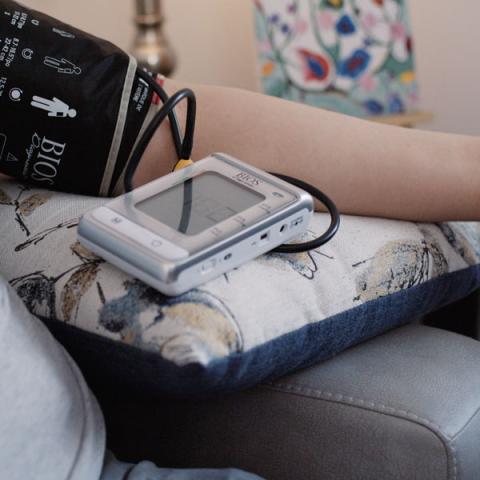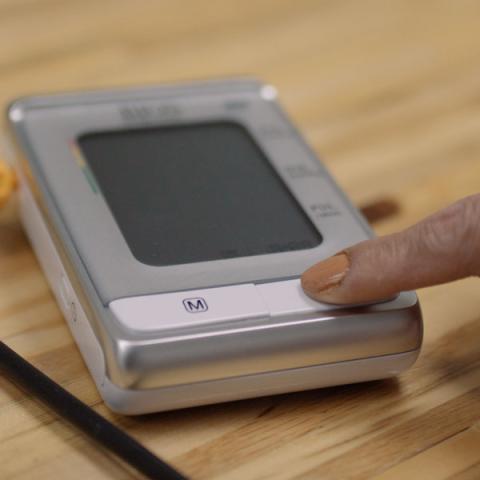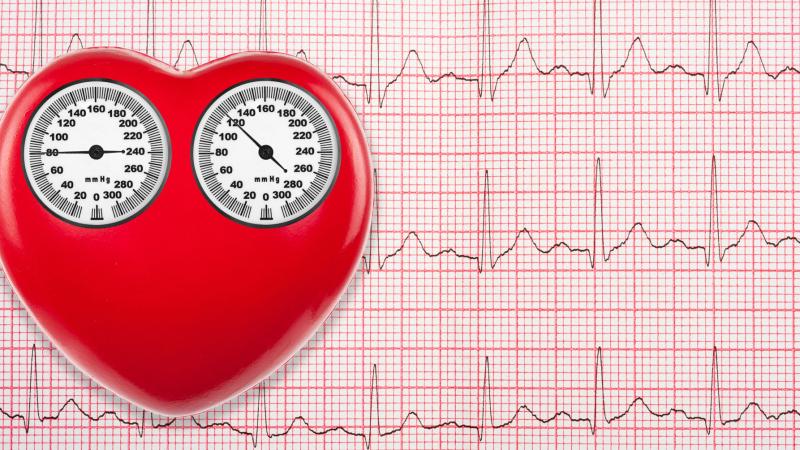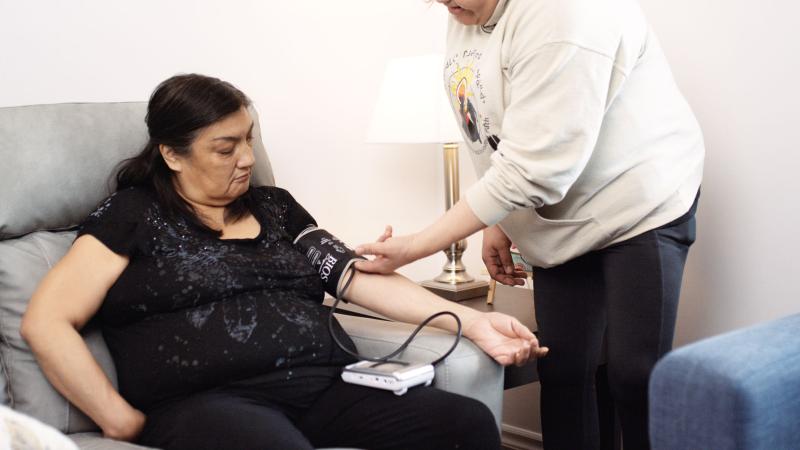Hypertension (high blood pressure)
High blood pressure is when the force of the blood in your arteries is higher than normal. Arteries are the blood vessels that move blood from your heart to the rest of your body.
Hypertension is a chronic condition in which the blood pressure is high most of or all the time. This can happen because of age, genetics, lifestyle, or other risk factors.
Constant high pressure in your arteries causes damage to them, and harms other blood vessels and organs especially the heart, the eyes, the kidneys and the brain. If it is not controlled, it can lead to many complications, like heart attack, stroke, or kidney disease.

Blood pressure measurements
Did you know?
- High blood pressure starts at 140/90 mm Hg or higher for either the top or bottom number
- If you are measuring your blood pressure at home, it is 135/85 or higher
About hypertension
-
Hypertension is also called high blood pressure.
-
It is a chronic condition where the force of blood against the arteries is too high (arteries are blood vessels that move blood from the heart to the rest of your body).
-
Most people with high blood pressure have no symptoms, even if their blood pressure is dangerously high. Because of this, hypertension is often called the “silent killer.”
-
The narrower or stiffer the arteries are, the higher blood pressure is.
-
Most people with high blood pressure have no symptoms, even if it is dangerously high.
-
You can have high blood pressure for many years and never feel any symptoms.
-
High blood pressure can be caused by normal narrowing of the arteries as you age, genetics (family history), lifestyle factors, and in some cases underlying medical conditions.
-
Lifestyle factors like diet, exercise, and smoking also affect your blood pressure.
-
It is more common in adults, but kids can have it too.
You are more likely to develop high blood pressure if:
-
You are older
-
You have a parent or sibling with high blood pressure (family history)
-
You have a lot of stress
-
You are obese or overweight
-
You are not physically active
-
You have a lot of salt in your diet
-
You use illegal drugs (like cocaine)
High blood pressure damages your blood vessels and organs.
If it is not controlled, it can lead to:
-
Heart attack
-
Heart failure
-
Stroke
-
Aneurysm (when a blood vessel weakens and bulges)
-
Kidney disease or failure
-
Vision loss
-
Sexual dysfunction
-
Angina (chest pain)
Prevention and Screening
Healthy habits help prevent high blood pressure and its complications, like:
-
Staying physically active
-
Lowering stress
-
Eating healthy and nutritious foods
-
Maintaining a healthy weight
-
Lowering alcohol use
-
Reducing salt in your diet
-
Not smoking
Knowing your blood pressure can help you make changes to keep you healthy.
-
You can check your blood pressure by taking readings with a blood pressure machine, at home or in the clinic.
-
It's important to have your blood pressure checked periodically starting at age 18.
-
Get it checked every year if:
- You are at high risk
- You have diabetes
- You are 40 years old or over
- Your blood pressure is close to the hypertension level (130s/80s) or if one of the numbers is often high - over 140 for the top number, or over 90 for the bottom number
-
If you have hypertension (high blood pressure), your healthcare team will create a plan for you. This may include using an at-home blood pressure machine so that you can follow it more closely.
Treatment
Know your healthy blood pressure target and seek follow-up if it remains high.
-
See a PCCR to learn what steps you can take to reduce your blood pressure and to learn more about your medications.
-
See a nurse to discuss new symptoms or if you have more questions about your medications.
-
See a nutritionist to learn about changes in your diet that might help.
-
See a doctor if your blood pressure is still high after making lifestyle changes and taking your medications, or if you are not satisfied with your medication.
There are medications and healthy lifestyle choices that treat hypertension and lower blood pressure. Most people will achieve a normal blood pressure with regular follow-up.
Knowing your healthy blood pressure target and checking yourself often will help keep you on track.
Healthy habits can help treat hypertension and prevent complications.
-
Not smoking
-
Exercising often
-
Eating healthy and nutritious foods
-
Maintaining a healthy weight
-
Lowering alcohol use
-
Lowering stress
-
Reducing salt in your diet
Some people need medication.
-
Most people can find medications that work for them, but it may take time and patience.
-
It is common to need more than one medication, especially over time.
-
They work in different ways and can help each other be more effective.
-
Let your health care team know if you have any side effects or are unable or do not want to take the medication daily.

Healthy blood pressure levels
Did you know?
- Blood pressure under 120/80 is ideal for healthy people who do not have hypertension
- For people diagnosed with hypertension, the healthy target is under 140/90. If they also have diabetes, the target is lower at 130/80
Explore more

Through regular medical appointments and monitoring your blood pressure, you can detect high blood pressure early so that you can manage it and pre

Knowing your blood pressure, and what a healthy target is for you, can help you stay healthy


